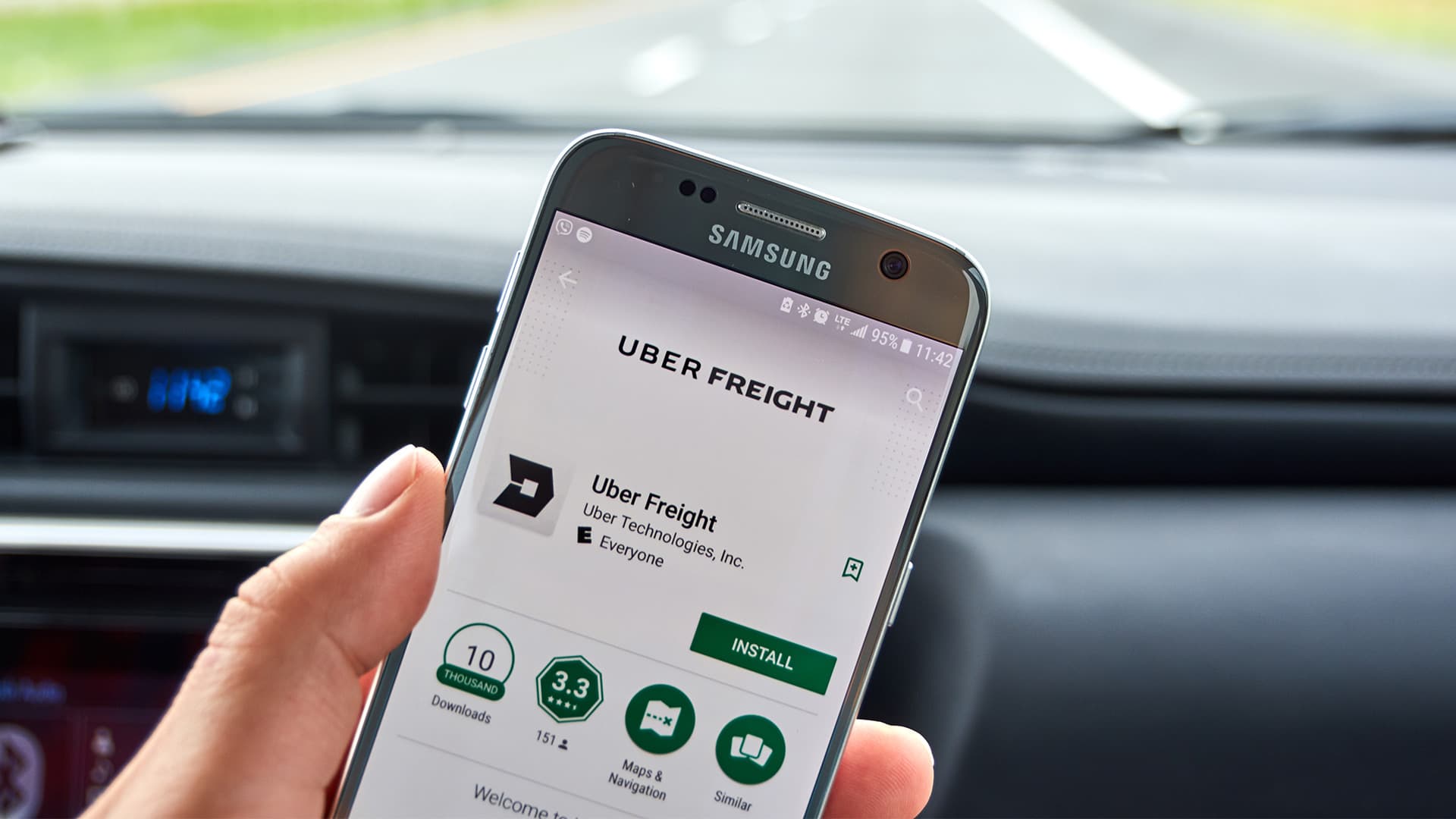Digital freight matching came out of the gate with a vengeance two years ago, but key players in the space have yet to become profitable. Here’s why this is a problem.
Two years ago, there was a lot of hype around how digital freight matching companies like Convoy and Uber Freight were poised to disrupt traditional transportation markets.
“Convoy, backed by billionaire tech pioneers Jeff Bezos and Bill Gates, and Uber Freight, an offshoot of the globally disruptive ride-sharing giant, are trying to grab a slice of the fragmented U.S. truck brokerage market,” JOC wrote at the time, “taking different routes to lure skeptical drivers and capacity-hungry shippers.”
Both apps match truck drivers with shippers (much like Uber’s ride-hailing app pairs drivers with customers who need a ride somewhere). At the time, both startups were trying to persuade U.S. shippers they could deliver “immediately covered contract and spot market loads, new capacity, total rate transparency, real-time tracking and data analytics, and market intelligence that can drive supply chain decisions,” JOC added.

Not Like they Planned It
By 2019, some of the wind was already out of these and other digital freight matching companies’ sails. Even though Uber Freight was losing money, for example, its parent company announced in September 2019 that it would funnel $200 million annually into the app.
Three months later, Convoy, another “digital freight network,” raised $400 million in a Series D funding round, bringing its post-money valuation to $2.75 billion. Gracing Convoy’s list of high-profile investors are Jeff Bezos, Marc Benioff, and U2’s Bono and the Edge.
Earlier this year, Uber Freight raised $500 million from Greenbriar Equity Group, putting its valuation at $3.3 billion. Call us skeptics, but it’s beginning to look a lot like the dotcom bubble in the digital freight matching space, where side benefits like total rate transparency and real-time analytics don’t appear to have come to fruition.
Much like the venture capital-rich dotcoms of old, these and other digital freight platforms attracted millions in capital in the name of changing how specific industries operate. So far, this hasn’t happened. In fact, Uber Freight continues to bleed money—to the tune of about $73 million in 2020 (down slightly from $81 million in 2019)—as it struggles to find its place in the market.
An Unprofitable Model?
Covering a recent Uber earnings call, FreightWaves says Uber’s net loss of 62 cents per share missed Wall Street projections by 2 cents per share. Revenue of $2.8 billion was down 20.4% from the corresponding quarter of 2019 and missed projections by $380 million.
As anyone who got caught holding the bag when the clock ran out on the first wave of dotcom companies can attest, this is probably not the time to put all of your stake and trust into a freight procurement concept that isn’t really living up to expectations. When a company can’t see a path to making money after being in business for two years, it’s a clear sign of trouble.
For instance, with its recent fund raising, Uber’s CEO said that he, “believes it will allow us to fund [Uber Freight] until it’s profitable.” The real question is, if Uber Freight is leveraging the technology from the larger part of the business (which it should be), how can it be losing so much money on this division? The answer is that it must still be “buying freight”—a warning sign of a price hike in the near future.
The bottom line is that all shippers should use caution when working with startup technology companies that aren’t profitable (or that don’t at least show some sign of becoming profitable in the next 6-12 months). Most of these companies will eventually sell or implode, leaving behind the trusted stalwarts that can provide the services, analytics, and visibility that shippers need to be able to effectively run their supply chains.
We’re Here for the Long Haul
By leveraging tracking information, the Global Control Tower provides analytics that measures key performance indicators (KPIs) like fleet cycle time, origin/destination dwell time, lane and hauler performance, back orders, freight spend, load optimization, and more. With their rate, equipment, lease, tracking, and invoice data in a central repository that’s accessible 24/7, companies can position themselves for success in any market conditions.



